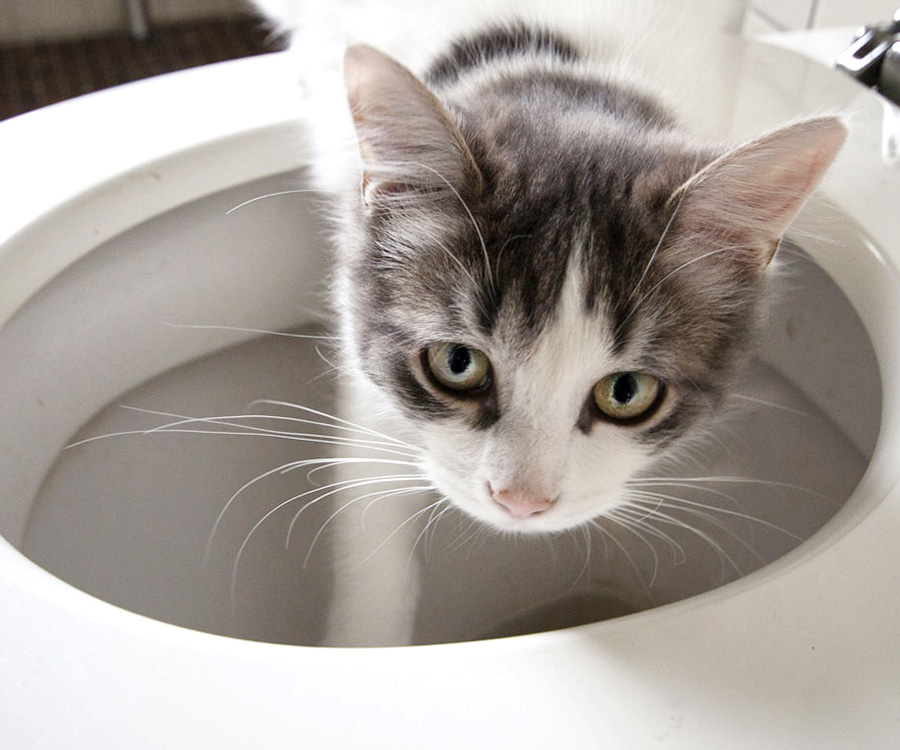Just about everyone has their private rationale when it comes to Can You Flush Cat Poo or Litter Down the Toilet?.

Introduction
As feline proprietors, it's necessary to bear in mind how we throw away our feline friends' waste. While it may seem hassle-free to purge pet cat poop down the toilet, this method can have destructive effects for both the environment and human health and wellness.
Alternatives to Flushing
The good news is, there are safer and much more accountable means to dispose of cat poop. Think about the complying with options:
1. Scoop and Dispose in Trash
One of the most usual method of dealing with feline poop is to scoop it right into a biodegradable bag and throw it in the trash. Make sure to use a specialized clutter inside story and deal with the waste quickly.
2. Use Biodegradable Litter
Opt for biodegradable cat litter made from materials such as corn or wheat. These litters are environmentally friendly and can be securely disposed of in the garbage.
3. Hide in the Yard
If you have a backyard, consider burying pet cat waste in a marked location away from vegetable yards and water resources. Make sure to dig deep adequate to avoid contamination of groundwater.
4. Set Up a Pet Waste Disposal System
Purchase a pet dog garbage disposal system especially developed for cat waste. These systems utilize enzymes to break down the waste, decreasing odor and ecological effect.
Health Risks
Along with ecological concerns, purging feline waste can also posture health and wellness risks to humans. Feline feces may have Toxoplasma gondii, a parasite that can create toxoplasmosis-- a potentially severe ailment, especially for pregnant ladies and people with weakened immune systems.
Ecological Impact
Flushing feline poop introduces hazardous virus and bloodsuckers right into the water supply, presenting a substantial risk to water communities. These impurities can adversely influence aquatic life and compromise water high quality.
Final thought
Accountable family pet possession prolongs past offering food and sanctuary-- it likewise entails appropriate waste management. By avoiding flushing cat poop down the commode and selecting alternative disposal techniques, we can minimize our environmental footprint and secure human wellness.
Why Can’t I Flush Cat Poop?
It Spreads a Parasite
Cats are frequently infected with a parasite called toxoplasma gondii. The parasite causes an infection called toxoplasmosis. It is usually harmless to cats. The parasite only uses cat poop as a host for its eggs. Otherwise, the cat’s immune system usually keeps the infection at low enough levels to maintain its own health. But it does not stop the develop of eggs. These eggs are tiny and surprisingly tough. They may survive for a year before they begin to grow. But that’s the problem.
Our wastewater system is not designed to deal with toxoplasmosis eggs. Instead, most eggs will flush from your toilet into sewers and wastewater management plants. After the sewage is treated for many other harmful things in it, it is typically released into local rivers, lakes, or oceans. Here, the toxoplasmosis eggs can find new hosts, including starfish, crabs, otters, and many other wildlife. For many, this is a significant risk to their health. Toxoplasmosis can also end up infecting water sources that are important for agriculture, which means our deer, pigs, and sheep can get infected too.
Is There Risk to Humans?
There can be a risk to human life from flushing cat poop down the toilet. If you do so, the parasites from your cat’s poop can end up in shellfish, game animals, or livestock. If this meat is then served raw or undercooked, the people who eat it can get sick.
In fact, according to the CDC, 40 million people in the United States are infected with toxoplasma gondii. They get it from exposure to infected seafood, or from some kind of cat poop contamination, like drinking from a stream that is contaminated or touching anything that has come into contact with cat poop. That includes just cleaning a cat litter box.
Most people who get infected with these parasites will not develop any symptoms. However, for pregnant women or for those with compromised immune systems, the parasite can cause severe health problems.
How to Handle Cat Poop
The best way to handle cat poop is actually to clean the box more often. The eggs that the parasite sheds will not become active until one to five days after the cat poops. That means that if you clean daily, you’re much less likely to come into direct contact with infectious eggs.
That said, always dispose of cat poop in the garbage and not down the toilet. Wash your hands before and after you clean the litter box, and bring the bag of poop right outside to your garbage bins.
https://trenchlesssolutionsusa.com/why-cant-i-flush-cat-poop/

Do you appreciate reading about Can You Flush Cat Poo or Litter Down the Toilet?? Put a remark directly below. We'd be glad to hear your reactions about this page. We are looking forward that you visit us again in the future. Loved our piece of writing? Please share it. Let other people discover it. Thanks for your time invested reading it.
Click Here